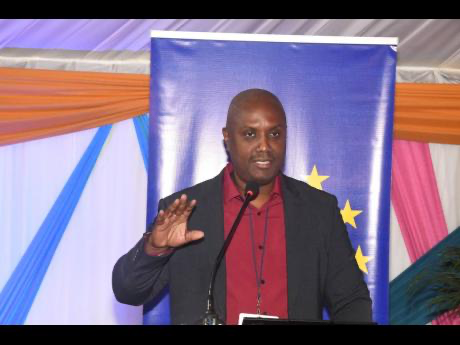(Jamaica Gleaner) In an assembly of civil society representatives, Richard Jones, executive director of the Caribbean Policy Development Centre (CPDC), has called for enhanced whistleblower protections for the nonprofit sector.
Speaking at a recent Council of Voluntary Social Services (CVSS) National Volunteer Conference, held in Kingston, Jamaica, he highlighted the critical role whistleblowers play in exposing corruption and mismanagement both within nongovernmental organisations (NGOs) and government institutions.
“Without strong whistleblower protections, employees may fear retaliation for reporting misconduct, which can prevent serious issues from being addressed,” he stated. “This fear stifles transparency and undermines public trust in our governance systems.”
He emphasised that, particularly in sensitive areas such as human rights, social justice, and anti-corruption, employees must feel secure in reporting issues of concern without the risk of losing their jobs or facing legal repercussions.
He said the CPDC is spearheading a campaign to create a supportive legal framework that includes robust whistleblower protections. He said that such legal measures are not only essential to fostering accountability within NGOs but also vital for ensuring that our governments’ actions align with community needs and ethical standards.
“Establishing laws that protect whistleblowers will help NGOs maintain integrity and accountability,” he said. “These protections empower individuals to speak out against malpractice without fear, fostering a culture of openness and responsibility.”
Jones said that these proposals also include recommendations for governments to implement formal reporting mechanisms that maintain anonymity for whistleblowers, thus encouraging more individuals to come forward with critical information.
“Transparency is essential for building trust amongst the public and between NGOs and governments,” he noted. “When governance structures allow for safe reporting of unethical behaviour, it reinforces the belief that organisations are operating with the community’s best interests at heart.”
Outside of seeking legal reforms, Jones said educational opportunities for NGO staff about their rights and the protections available to them would be essential. He believes an informed workforce is crucial for a thriving civil society sector that actively combats corruption and advocates for its communities.
In light of increasing regulatory pressures, especially following the Financial Action Task Force’s (FATF) Recommendation 8, the CPDC executive director is urging local NGOs to unite in promoting these critical reforms. Recommendation 8 is the financial guideline set by the FATF, which while good intentioned, has placed significant burden on many Caribbean NGOs, undermining their work with vulnerable groups and also their long-term viability. Mr Jones calls for a collective response from Jamaican and Caribbean NGOs on the matter.
Aniceto Rodriguez Ruiz, head of cooperation at the EU who addressed the conference, emphasised that for CSOs like CVSS to fully engage in governance and development, they must operate within an enabling legal and policy environment. He remarked, “The ideal environment is one in which there is conducive institutional and capacity building that supports the growth and full participation of civil society.”
Reflecting on the progress made since last year’s launch of the AIM programme, under which the conference was held, he expressed his satisfaction at witnessing the positive developments initiated by CSOs, particularly the CVSS.
“I’m twice happier today to be here one year later to see the continuation of the good work being done under this civil society organisation’s initiative,” he noted.
The conference was held under the theme ‘Voice, Visibility, and Influence: Creating a Lasting Impact,’ and was attended by CSOs, stakeholders and friends of civil society. It garnered the endorsement of organisations such as National Baking Company, Supreme Ventures, Sandals, JMMB Joan Duncan Foundation and others. In addition to raising awareness, the conference aimed to build local and regional partnerships, fostering leadership in an inclusive and engaging space. By promoting collective action towards common causes, the event seeks to strengthen the culture of collaboration among public, private, and civil society organisations.
The CVSS, currently 150 members strong, is one of the longest-serving and largest voluntary sector umbrella NGO in the Caribbean. Founded in 1940, its mission is to build the capacity of members and the wider community and create sustainable alliances.

